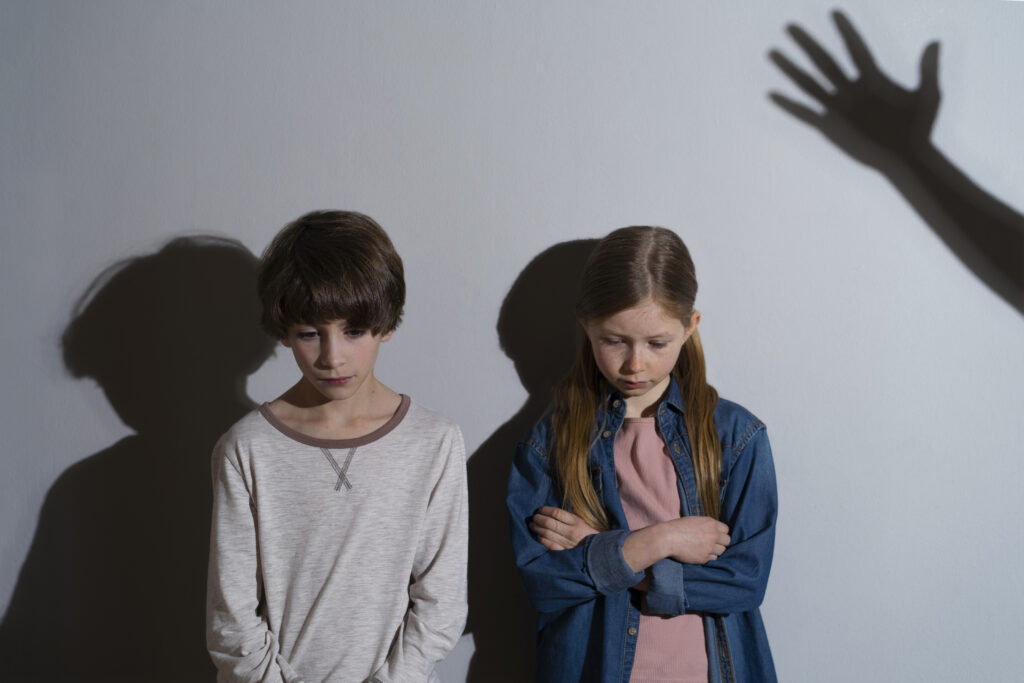Can a parent lose custody for emotional abuse? Absolutely. It requires proof in court, but custody decisions are always granted based on a child’s best interests. If a judge decides there’s a risk of abuse, there’s a good chance they’ll grant sole legal custody to one parent.
In some cases, the abusive parent will keep the right to see the child, though their visitations might be limited, supervised, or completely monitored. If the abuse charges are criminal there could be a trial in criminal court. Even if they are convicted, the judge might rule that they remain a legal parent, meaning they have the right to pursue custody and visitation—even if they might not receive it. In rare circumstances, and based upon the judge’s ruling, parental rights might be terminated.
Family courts take abuse allegations very seriously. They want a child to retain their relationship with both parents if possible, and will rule accordingly. A judge might hold personal assumptions and values about parental and gender roles, but family law prohibits this bias. A child’s place isn’t strictly with their mother or father, and a good family court system will make the correct decision based on a child’s needs and the evidence presented. A family lawyer can help talk you through your options and provide you with the necessary support to do what’s best for your child.

Table of Contents
How Do the Courts View Emotional Abuse?
Emotional abuse is just as serious as physical abuse, especially when it comes to a child custody case. Courts and judges look at emotional abuse as threats to the child, and anything that puts a child at risk of harm is an attack against their well-being.
Emotional child abuse can look like many things, such as:
- Scare tactics
- Isolation
- Use of intimidation
- Creating a hostile environment
- Emotional manipulation
- Humiliation
- Beratement
Any child exposed to emotional abuse can suffer from depression, anxiety, stress, low self-esteem, and other long-term effects. This treatment can also create a cycle of abuse that causes the child to act out in social environments, such as school or daycare.
If emotional abuse by a parent is proven, that parent will receive fewer custodial rights and full custody might be granted to the non-abusive parent. Courts will create a custody arrangement based on the child’s best interests; this can mean continuing contact with both parents to strive toward meaningful relationships. If joint custody is deemed unsafe because of emotional abuse, the courts will move forward with sole custody.
Again, the court’s primary interest is the welfare and safety of the child. Any evidence of emotional abuse will significantly impact a judge’s decision determining custody. If evidence includes testimony from psychological experts, video evidence, documented instances of abuse, or any other concrete evidence, the court will consider the abusive parent’s rights. They will also consider the willingness of the abusive parent to acknowledge and admit their behavior and seek professional help. The court may allow supervised visitations in some instances, but ultimately the court’s aim is for the child to be placed in a balanced, nurturing, stable environment.
Signs of Emotionally Abused Children
There are some obvious and non-obvious signs of emotional abuse in children, and observing any of these signs is enough cause to bring it up to the other parents or the courts.
Signs of an emotionally abused child can include:
- Sudden changes in behavior
- Dramatically decreased academic performance
- Anxious or anticipatory demeanor
- Nervousness around particular individuals
- Avoidance
- Withdrawn or unresponsive behavior
- Overly passive or compliant behavior
- Reluctance to go home, or overly early arrival or late departure from school
- Noticeable lack of adult supervision
- Emotional distress, agitation, aggression, or rage

How To Prove Emotional Abuse in a Child Custody Case
Proving emotional abuse can feel daunting, but if you wish to protect your child, you need to prove that their well-being is at risk. When your child is in the care of your ex-spouse, and you have reason to suspect that they are being abusive, there are steps you can take. Emotional abuse is more difficult to prove, as there is less visual and physical evidence, but that doesn’t make it impossible.
Proving your child is being emotionally abused may require:
- Tracking texts, messages, and emails with your ex-spouse
- Obtaining eyewitness accounts
- Obtaining photographs and video recordings
- Seeking medical or psychiatric records
- Acquiring information from your child’s teachers
- Filing police or incident reports
- Following up on allegations of domestic violence
You must keep a journal and track all evidence of emotional abuse to the best of your ability. Write down every incident, including verbal abuse. Document the time, date, and place it occurs. Include whatever supporting evidence you can. Ask for a psychological evaluation, and utilize your child’s school therapist and nurse. During your custody case, ask for a mental health study or psychological evaluation, where the mental health expert will talk with your ex-spouse and look for signs of emotional abuse.
Protecting Children From Emotional Abuse
Recognizing and documenting emotional abuse is very important to your case and can protect your child from ongoing abuse. Suspecting that abuse is occurring at all can turn your life upside down, but you need to know that you and your child are not alone. Contact Skyview Law to discuss your legal options, and know that having an expert Family Law attorney on your side can make all the difference.







